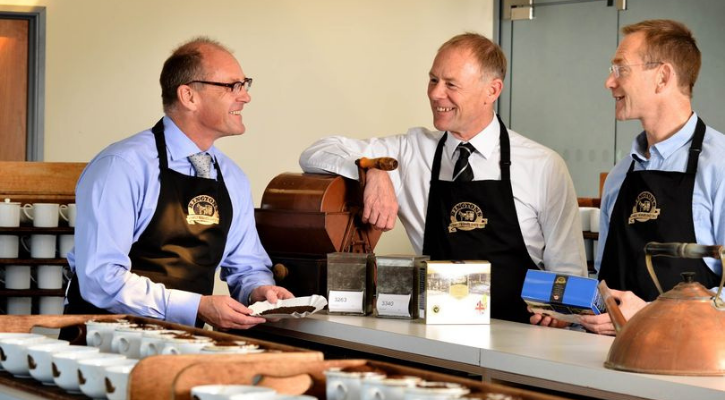Directors at Ringtons have revealed how soaring sales of tea at the start of the Covid-19 outbreak helped the firm navigate the pandemic.

The pandemic impacted the Byker business in the final three months of its financial year ended June 26 2020, knocking both sales and profits.
Revenues fell by 3.1% from £61.06m to £59.17m, while profitability was also hit, falling by 10.2% from £3.72m to £3.34m.
But the firm said the impact would have been greater had it not been for stronger trading up until the arrival of the pandemic, coupled a rush by customers to stock up on teabags, fearful they may not easily be able to buy their regular supply of Ringtons tea and biscuits in lockdown.
CEO Simon Smith said the the firm was forced to take its 229 delivery vans, spread across 18 UK offices, off the road for the first time since the two World Wars to protect its customers and staff.
When the vans were returned to the roads after a trial in one office in May 2020, customers were delighted to see them back.
Ringtons’ factory at Balliol operated throughout the period and, while some staff were furloughed for a short time, no redundancies were made and it has maintained its 550-strong workforce.
Mr Smith said: “With new protocols required, and new split shifts, it was difficult to keep up with supply. With a totally committed, fantastic approach from our staff and support and understanding from our large customers, we kept supply going and have done so throughout the pandemic.
“We shut the van business down in March. It was temporary but at that point we didn’t know how long it would be for. That was a hard decision but we needed to make it. When we look back to March, people didn’t know what to expect and we weren’t geared up to do the right protocols for our staff or customers.
“We did a trial with the vans in one office in May, not knowing what customers would think - but the customers were delighted to see us back. Most of the comments were ‘where have you been?’ ”
He added: “The business balance sheet has always been strong, so we were in a reasonable position to be able to cope with the extraordinary pandemic impact.
“Covid has had a significant impact on our results but tea consumption has actually grown over this period for the first time in decades, so we feel fortunate to be in the business we’re in, tea and biscuits, which people have continued to consume - we are certainly not complaining.”
Mr Smith said the firm’s beverages and coffee business has been hit hard, with hospitality effectively closing down, although it represents a small part of the overall business.
Its performance is recovering, he said, albeit at a slower pace as many customers are reluctant to stock up, fearful of further lockdowns, while others have yet to reopen amid staff shortages or operational issues surrounding social distancing restrictions.
Ringtons said that, as a long term partner to its customers, it has done everything it can to support them through difficult periods.
Alongside working through the pandemic, the business has continued on its sustainability journey, and is committed to reducing its packaging to doorstep and internet customers by a net 12 tonnes a year by the end of next year.
Its teabag paper has also been converted to PLA plant based materials, and the company also continues to make significant contributions to environmentally-based charities through its two foundations, Ringtons Environment Fund and Ringtons Tea Growing Community Charitable Trust.










